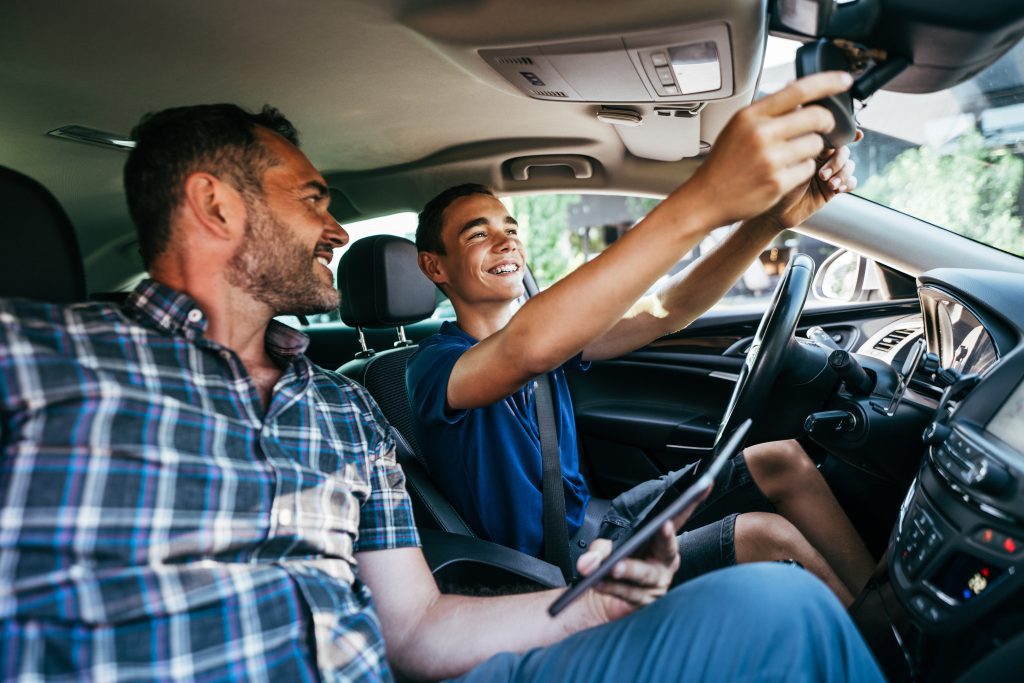The car buying process doesn’t have to be stressful and one important part of the journey is test driving a car you want to buy. Once you’ve secured approval from one of the fantastic lenders on our panel, you have the freedom to choose your car from any FCA-approved car dealer in the UK. Test driving a car before you commit to the purchase is crucial as it gives you a chance to see how the car drives, if it’s right for you and check over the condition of the vehicle too!
One of the biggest benefits of test-driving a car is the ability to spot any problems with the vehicle, especially if you’re buying a second-hand car as their history may not be as clear. No matter if you’re buying a car through a finance broker, a private seller or a dealer, you should always be offered the opportunity to test drive the car you wish to buy. If you’re buying your first car or you usually turn down the dealer when they offer a test drive, you may not be very clued up on what to do. Our top tips on how to test drive a car are here to help you!

Can you test drive a car with a provisional license?
Before you are legally allowed to test drive a car, you will need to hold a full UK license. A car dealer will usually ask to take of copy of your license to check its validity and for insurance purposes too. You will not be able to test drive a car with a provisional license. It can be possible to buy a car with a provisional license but you won’t be able to test drive the vehicle before you buy it.
Do you need insurance to test drive a car?
The second thing you should consider before test-driving a car is insurance. Even if you are taking a test drive, driving on any UK road with no insurance is illegal. There are a number of ways in which car insurance for a test drive works:
- If you’re buying from a dealer, they will usually have an insurance plan in place which will cover you whilst on a test drive. This can be especially helpful if you’ve recently passed your driving test and don’t have an insurance premium in place yet.
- Check if your insurance premium covers you for test-driving a vehicle. If not, you won’t be able to test drive a car privately. Adding this level of cover onto your policy could make your car insurance more expensive though.
- You could take out temporary car insurance to cover you for a few hours whilst you test drive a car but you will have to check the policy will cover this.
Can you test drive a car on your own?
Usually, private sellers won’t allow you to test drive the car alone, unless they are very trustworthy! At a dealership, the salesman may wish to join you on the test drive so they can go over key features of the vehicle or you can request to test drive alone. Depending on the dealer, they may allow you to test drive the vehicle on your own but you may need to provide further information or meet their criteria. You can also take a friend or family member along for a test drive if it makes you feel more comfortable.
How to test drive and car and what to look out for:
1. Verify the paperwork when buying privately.
When you’re buying a car from a dealer, it is usually less risky. This is because the dealer will have done their own checks and have more information regarding the condition and history of the car. When you buy from a private seller, you have to take the car at face value and you have less protection if something goes wrong with the purchase. Before you set foot inside a car from a private seller, you should check all the documents and information are provided and correct. Ask the seller for information such as:
- Check the car’s V5C registration certificate and verify the address is the same as the seller’s. Ideally, you should meet in person at the seller’s address so you can check the information on the V5C and make payment face-to-face rather than online.
- Ask for the current tax details and MOT test number or certificate, You can verify this information with the DVLA by entering the car’s registration number.
2. Take the vehicle out for at least 30 minutes.
Car test drives usually last 15-30 minutes but we recommend taking the vehicle out for 30 minutes at least! This gives you a chance to drive the car over different types of roads to see how it performs and even park up somewhere to check over the bodywork and condition without being under the watchful eye of the seller. You can also park up and perform any manoeuvres you wish in the vehicle too.

3. Check how the car responds when driving.
When you come to us for car finance, we always recommend you set your requirements for the car you want to buy. We’ll never push you into a car that is not first for purpose and ask what you need from your next car. This can range from a car with low running costs, a car with a large boot to a car that is suitable for a family. Whatever your requirements are for your next vehicle, it’s important you consider this during a test drive. Whilst in the driver’s seat you should consider whether you feel comfortable, how well you can see the road, your seating position and height and how easy the controls are to reach. Also, think about how easily you can get in and out of the car and if the boot sill is low enough to unload shopping or luggage.
4. Does the car meet your personal needs?
When you buy a used car, you should expect the car to have a few little bumps and scrapes but you should still check the bodywork over for anything glaringly obvious. Look for any signs of scratches, rust or chips in the paintwork. You should also check the body panels for any gaps as it can indicate the vehicle has had major repair work. When checking the tyres, they should not be too worn and you can use the simple 20p coin trick to check the tread depth of your tyres.
5. Check over the bodywork and tyres.
When you buy a used car, you should expect the car to have a few little bumps and scrapes but you should still check the bodywork over for anything glaringly obvious. Look for any signs of scratches, rust or chips in the paintwork. You should also check the body panels for any gaps as it can indicate the vehicle has had major repair work. When checking the tyres, they should not be too worn and you can use the simple 20p coin trick to check the tread depth of your tyres.
6. Do all the lights and features work properly?

All the lights and features of the car you wish to buy should be in good working order. You can check the indicators, brake lights and headlights of your vehicle by asking the salesman to perform the action while you check around the vehicle. Or if you’re test driving alone, you can use a reflective surface such as a shop window to check for yourself. You should also check all the controls inside the vehicle are working such as electric windows, cruise control, reversing sensors or cameras or any other features as advertised by the seller.
7. Is the mileage correct?
When buying a car, take note of what the seller is stating the current mileage is and check it matches on the dashboard. As a general rule of thumb, you can work out what the mileage should be by multiplying the car’s age by 10,000. An over-exceeded mileage could indicate the car’s history may not be correct.
8. Go under the bonnet.
When preparing for your driving test, you will be required to know how to check certain aspects under the bonnet of the car. So, it’s worth remembering when you test drive a car too. Make sure there are no leaks or anything glaringly obvious. You should check the engine oil levels, brake fluid reservoir, windscreen washer fluid levels and engine coolant.
Find the best car finance from trusted lenders!
Let us find you the best car finance deal from one of the UK’s most reputable finance lenders! We can help match you with the lowest APR for your circumstances and give you the freedom to choose a car within your budget.

